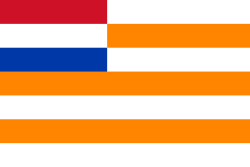| << | March 1900 | >> | ||||
|---|---|---|---|---|---|---|
| Su | Mo | Tu | We | Th | Fr | Sa |
| 1 | 2 | 3 | ||||
| 4 | 5 | 6 | 7 | 8 | 9 | 10 |
| 11 | 12 | 13 | 14 | 15 | 16 | 17 |
| 18 | 19 | 20 | 21 | 22 | 23 | 24 |
| 25 | 26 | 27 | 28 | 29 | 30 | 31 |




The following events occurred in March 1900:
Contents
- March 1, 1900 (Thursday)
- March 2, 1900 (Friday)
- March 3, 1900 (Saturday)
- March 4, 1900 (Sunday)
- March 5, 1900 (Monday)
- March 6, 1900 (Tuesday)
- March 7, 1900 (Wednesday)
- March 8, 1900 (Thursday)
- March 9, 1900 (Friday)
- March 10, 1900 (Saturday)
- March 11, 1900 (Sunday)
- March 12, 1900 (Monday)
- March 13, 1900 (Tuesday)
- March 14, 1900 (Wednesday)
- March 15, 1900 (Thursday)
- March 16, 1900 (Friday)
- March 17, 1900 (Saturday)
- March 18, 1900 (Sunday)
- March 19, 1900 (Monday)
- March 20, 1900 (Tuesday)
- March 21, 1900 (Wednesday)
- March 22, 1900 (Thursday)
- March 23, 1900 (Friday)
- March 24, 1900 (Saturday)
- March 25, 1900 (Sunday)
- March 26, 1900 (Monday)
- March 27, 1900 (Tuesday)
- March 28, 1900 (Wednesday)
- March 29, 1900 (Thursday)
- March 30, 1900 (Friday)
- March 31, 1900 (Saturday)
- References








